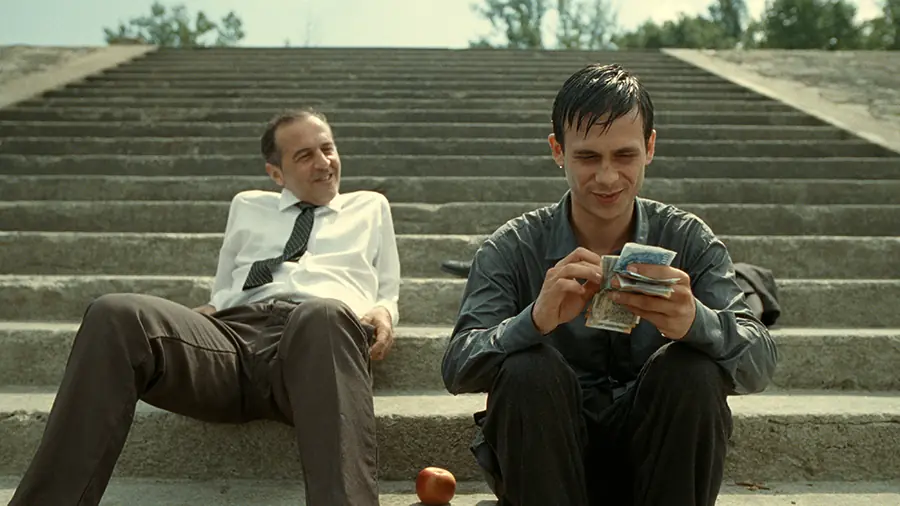JUPITER’S MOON. An Unconventional Sci-Fi Galaxy of Ideas

A group of Syrian refugees is caught attempting to cross the Hungarian border illegally. First come warnings, then gunfire. Among the victims of this crackdown is Aryan Dashni (Zsombor Jéger), who is shot in the chest. However, not only does he survive, but he also begins to float in the air, spinning like a dervish. After a moment, weakened by his wounds, he faints and wakes up in a hospital where he is examined by Dr. Gabor Stern (Merab Ninidze). When Gabor discovers that Aryan can levitate, he is initially shocked but soon starts planning how to profit from the refugee to pay off his debts. He decides to take Aryan on house visits to his patients, persuading them that this flying Syrian is a living miracle who can heal them—at a price. “Jupiter’s Moon” is a true galaxy of ideas—a film so fresh and unique that it’s hard to compare it to anything else.
Director Kornél Mundruczó fearlessly blends both themes and forms in unexpected ways. He addresses the plight of Syrian refugees using long, raw, almost documentary-style shaky shots. Yet during Aryan’s levitation scenes, everything takes on a majestic fluidity; the camera lifts and spins around him like a satellite, creating a spectacular effect reminiscent of a science fiction masterpiece. Mundruczó equally skillfully combines the story of a debt-ridden doctor with a turbulent past with action cinema. The film thus includes both cleverly written dialogues and dynamic chases and shootouts. Additionally, the director weaves in religious symbolism—mainly Christian but not exclusively—and the relevant theme of Middle Eastern refugees arriving in Europe. As a result, there is plenty of situational humor, though the film deals with serious subjects at heart.

This could have been another argument in favor of “Jupiter’s Moon”. Unfortunately, in this case, Mundruczó, who proves himself as a visionary and true auteur, fails as a storyteller. His experiments look impressive, but even together, they don’t manage to make the viewer eagerly await the plot’s development. Paradoxically, the story’s complexity kills any attachment to the characters from the very beginning of the film. Aryan is nearly a complete enigma; all we know about him is his name, origin, that he’s searching for his father, and that he can fly—though it’s unclear why. Meanwhile, Gabor is haunted by past mistakes, which he now seeks to rectify by using Aryan, yet he is also portrayed as extremely unlucky. And that’s where the information about the characters ends. It’s challenging to engage with the fate of people about whom we know too little to care. With “Jupiter’s Moon”, the riskiest artistic choices were successful, but the simplest ones fell short.
As a result, Mundruczó’s film is as uneven as possible. On one hand, the bold blending of genres and themes paid off. Science fiction and action cinema successfully coexist with religious symbolism, drama, and social commentary. On the other hand, it’s all in vain if viewers don’t care why Aryan can fly or why Gabor has financial problems. There’s no one to empathize with, no one to root for, and no character to truly like. And this is remarkable, considering that European independent cinema has traditionally been rooted in strong characters and well-written scripts rather than pure form. With Mundruczó, it’s the opposite. This film tackles significant issues in an extraordinary way, but it feels like watching it through a closed window—without the ability to fully experience what’s on the other side. And although much happens, impressively, with each passing minute, “Jupiter’s Moon” drifts further away.

